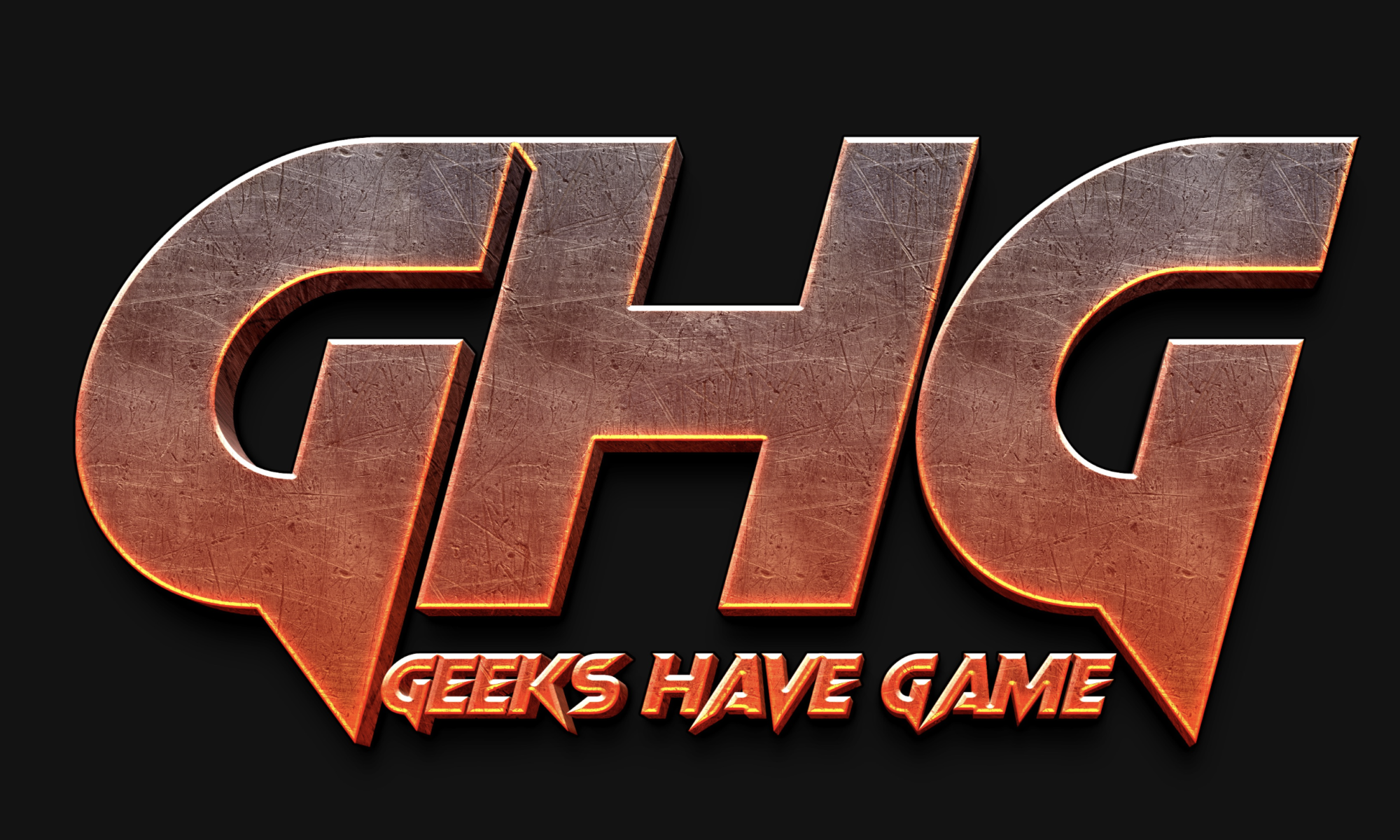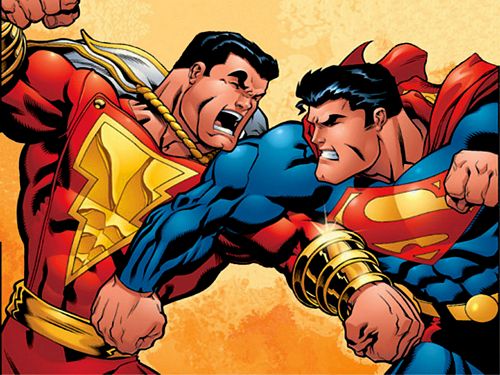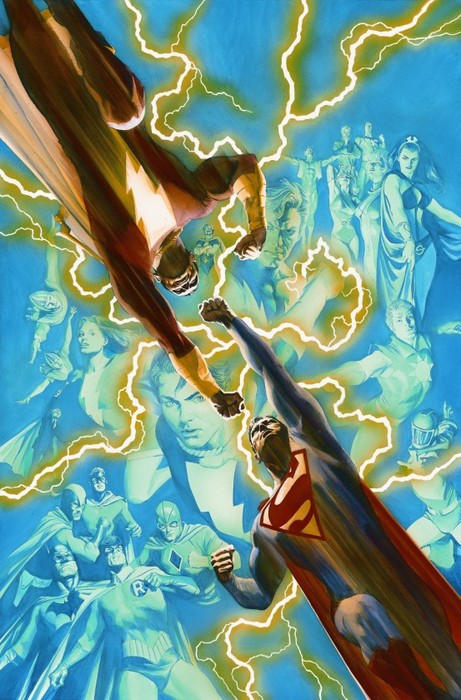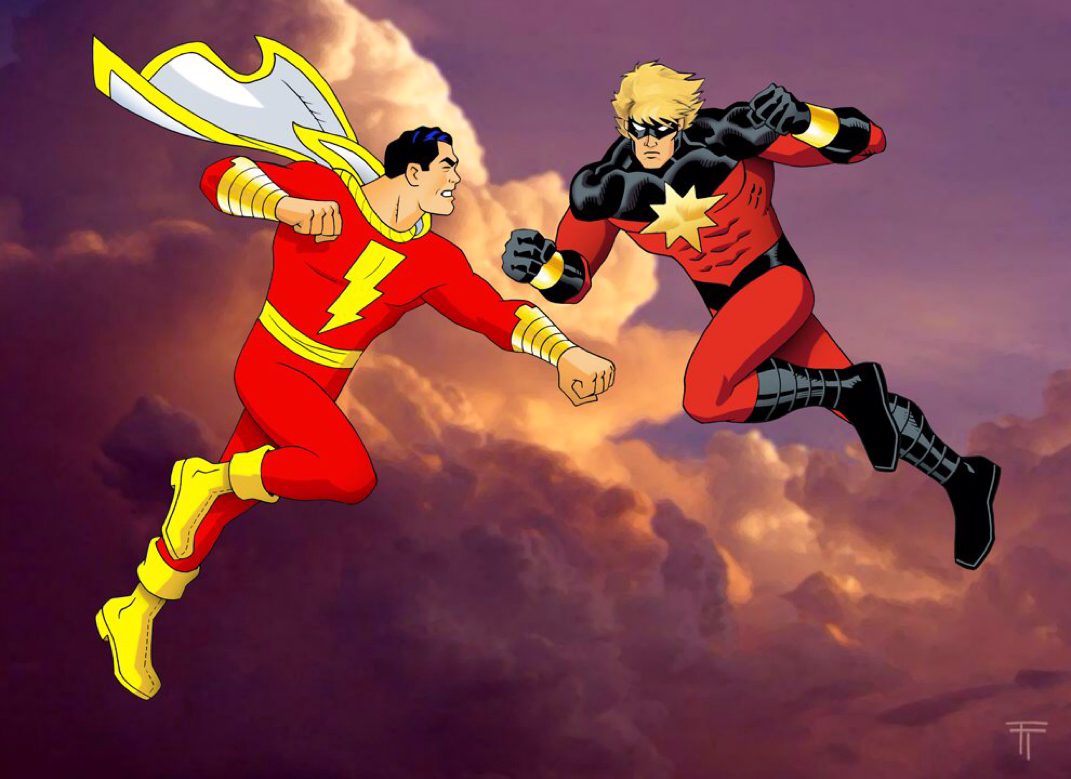
@TheBelser
What’s up, geeks? It’s your man, “The Belser“, and welcome back to part 2 of my series, The Saga of Captain Marvel. Today, we’re going to discuss the comic book lawsuit to end all comic book lawsuits. National Comics Publications v. Fawcett Publications, one of the longest-running litigation battles in comic book history, wound up changing up the comics industry forever; the ramifications of this case will affect DC, Marvel and Captain Marvel, in particular, for the foreseeable future. I know, I know legal mumbo jumbo can be boring, so, I’ll try to jazz this up as much as possible, and bring this to a close in such a way that even the layest of laymen can understand. Enjoy!
Initial Accusation
In the beginning, National Comics Publications (which would eventually become DC Comics) realized they hit a goldmine with the creation of Superman in 1938. The character was first-of-its-kind, and they wanted to make sure that nobody else to get in on it. So National Publications went on something of a suing spree, going after every publisher who tried to come out with even the slightest hint of a Superman rip off. Case in point: the company filed the first such lawsuit against Fox Feature Syndicate for their Superman-rip-off, called Wonder Man, in 1939. As a result, the character only lasted one issue. And immediately following that, in 1940, comes Captain Marvel. As I stated in the previous article, Captain Marvel would eventually become the most popular superhero character of the 1940s, selling a million plus copies on a regular basis, and had just been the first superhero to be adapted into a film serial (The Adventures of Captain Marvel).
As a result, DC Comics was clearly outraged at two things:
- Fawcett Comics created a Superman rip-off.
- This Superman rip-off was outselling Superman.
Accoridingly, and surprising no one, DC took legal action and filed suit against Fawcett. While most publishers DC went after legally backed down, Fawcett decided to fight. Captain Marvel was the company’s flagship comic book character and was extremely successful. DC first attempted a cease-and-desist on the release of the Adventures of Captain Marvel serial. The serial was released anyway by Republic Pictures and DC officially filed suit against Fawcett in September 1941.
The First Trial
While DC filed suit in 1941, the actual trial took seven years (March 1948) to make it to a courtroom. DC’s legal team noted the many similarities of Superman and Captain Marvel, in terms of costumes, powers, enemies, storylines, etc. They went so far as to place the comics side by side to show that Fawcett was replicating the exact art and poses of Superman. Fawcett’s counter move was illustrating that characters like Tarzan and Doc Savage has performed said feats long before Superman. However, one factoid sealed the deal on the case in Fawcett’s favor. At the time, DC was running daily newspaper strips of Superman through the McClure Syndicate. DC had failed to secure the copyright to said strips While the judge finds Captain Marvel to be a Superman rip off, he also considered DC’s Superman copyright claim to not be valid at the time. Therefore, the case was ruled in favor of Fawcett Publications (“National Comics Publications v. Fawcett Publications, 93 F. Supp. 349 (S.D.N.Y. 1950) District Court, S.D. New York”, 1950)
The Appeal
DC would appeal that decision in 1951 to the United States Court of Appeals for the Second Circuit. Judge Learned Hand presided over the case, and ruled in favor of DC this time around. Judge Hand found that while the McClure strip itself was not under copyright, DC’s Superman copyright was still valid. Judge Hand also ruled that while he did not find the character of Captain Marvel itself was an infringement, but specific stories or super feats pertaining to the character were infringements(“National Comics Publications v. Fawcett Publications, 93 F. Supp. 349 (S.D.N.Y. 1950) District Court, S.D. New York”, 1950).
Though the decision could be appealed in a lower court, the damage had been done by this point. Due to the end of World War II, superhero comics across all publishers had decreased significantly by the early 1950s. The execs at Fawcett just didn’t think it was financially responsible to continue this lawsuit. As such, Fawcett decided to settle out of court with DC In 1952. DC agreed to settle on two conditions:
- Fawcett had to pay DC $400,000 in damages
- Fawcett had to cease publication of all comics in relation to Captain Marvel.
Marvel For the Win!
Throughout most of the existence of DC Comics, its chief competitor has been Marvel Comics. Like DC, Marvel was not known by that name when it first debuted; founded by publisher Martin Goodman in 1939, the company was originally known as Timely Publications. It would later change its name to Atlas Comics in the 1950s and would remain so until the ‘Silver Age’ of comics. With the debut of The Fantastic Four, Atlas Comics kicked off a whole new age of popular superhero comics such as The Incredible Hulk, The Amazing Spider-Man and The Uncanny X-Men. At behest of writer/editor Stan Lee, publisher Martin Goodman decided to rename the company from Atlas Comics to Marvel Comics (a nod to the name of the very first comic the company ever published) in the mid-1960s. The name Captain Marvel was then publicly available at the time, and the publisher felt it was in the company’s interest to snatch up any name with “Marvel” in it. So, they trademarked the name CAPTAIN MARVEL in 1967. Marvel’s first version of Captain Marvel debuted in Marvel Superheroes #12 of that same year. This character would end up spawning six successors over the years (but that’s another story for the next article). The legal rules for the Captain Marvel trademark state that Marvel Comics must publish a regular comic entitled Captain Marvel every few years or so or they risk losing the trademark to DC Comics.
Shazam! A New Name for An Old Hero
DC Comics licensed the rights to the original Billy Batson version of Captain Marvel, and all the other Fawcett characters, in 1972. By that time, the name Captain Marvel had already been copyrighted and trademarked by Marvel Comics. The result was the following for DC: they could refer to their character as “Captain Marvel”, but only on the inside of a comic book or in the dialogue of a program like a TV show or cartoon. However, in terms of all marketing regarding the character, he would have to referred to as Shazam! (that stipulation includes show titles, toys, merchandise, comic titles, etc.). This began a decades-long mass confusion among the fans, in particular readers new to the character who did not know of the Captain Marvel name, and just simply refer to this character as Shazam. However, with the launch of DC Comics’ New 52 reboot in 2012, DC writer Geoff Johns have officially decided to forgo the Captain Marvel name altogether, and the character is now known as officially just Shazam. Johns’ reason for the change: “Everybody thinks he’s called Shazam already.”

Now that I have referred to the fact that Marvel owns the name Captain Marvel, I hope you will join me next time, where I go over the first version of Captain Marvel that Marvel Comics produced: Mar-Vell of the Kree. See you next time!
– JaDarrel Belser
References
Wlilson, Matt D. 30 July 2012. THE MESSED-UP HISTORY OF MARVEL’S ‘CAPTAIN MARVEL’ AND WHY IT DOESN’T MATTER. Comics Alliance. Retrieved from http://comicsalliance.com/captain-marvel-history-carol-danvers-mar-vell-shazam/
(10 April 1950). “National Comics Publications v. Fawcett Publications, 93 F. Supp. 349 (S.D.N.Y. 1950) District Court, S.D. New York”. Law Resource, Org. Retrieved from https://law.resource.org/pub/us/case/reporter/F2/191/191.F2d.594.197.21832.html



